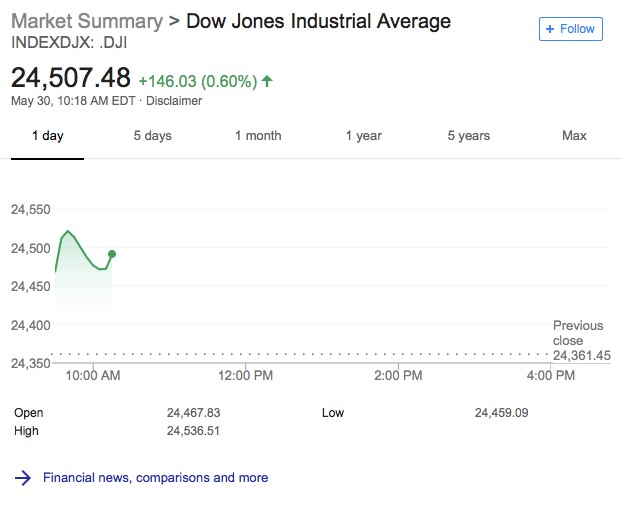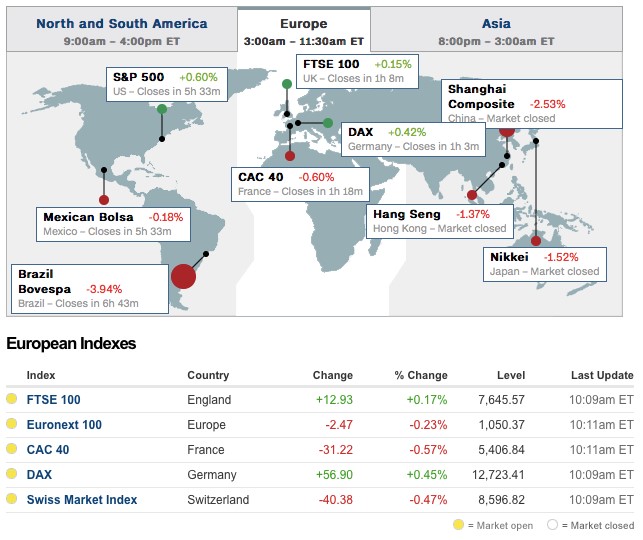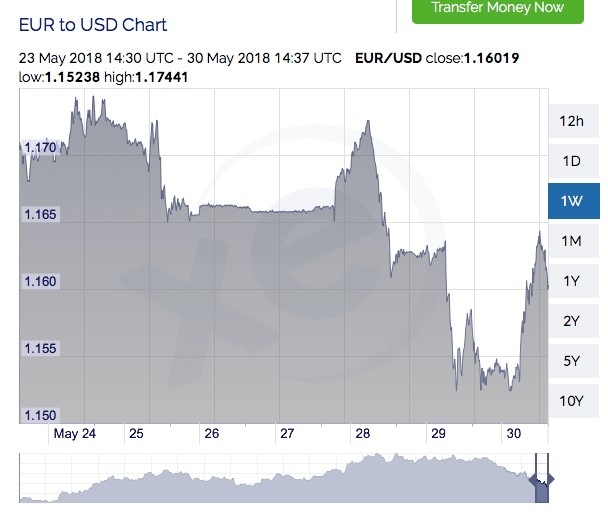Some six years after the Eurozone dodged the breakdown bullet, an Italian political crisis is unleashing a full clip, sending the euro to an 11-month low and rattling stock markets on three continents.
The crisis is very much about the euro, as Italy’s two populist parties—the Five Star Movement (M5S) and the far-right Northern League, which came out on top in an inconclusive election held on March 4—stand accused by the Democratic Party of scheming to abandon the euro.
The crisis was set off late last week when the two parties, which had been attempting to form a government, insisted that President Sergio Mattarella approve their choice for finance minister, Paolo Savona, an outspoken critic of the euro.
Mattarella vetoed the nomination and the incoming populist government collapsed before even taking power, while M5S announced called for the president’s impeachment. The incoming prime minister, Giuseppe Conte, who had been approved by both parties, stepped aside.
Mattarella was installed by a previous pro-EU government while Savona, is an 81-year-old former industry minister who views Italy’s adoption of the euro as a huge mistake.
Italy, eurozone’s third-largest economy, has been without a government since the elections ended in a hung parliament. In the meantime, the President has tasked former IMF official Carlo Cottarelli, unelected technocrat, with forming a new government but this, too, has failed.
And while the U.S. markets have already recovered from a Tuesday sell-off, the Dow lost 392 points, and as of early trading, isn’t back into gains territory.

(Click to enlarge)
European markets have also recovered somewhat from Tuesday’s carnage, with Italy’s FTSE MIB up 1.7 percent Wednesday, and markets in Germany and Spain up only slightly, while France’s Cac remained in negative territory.
The euro thought it would get a reprieve early Wednesday, initially recovering all of the previous day’s losses, but then it slipped back to $1.1625.

(Click to enlarge)
It’s a nightmare for the euro, and though it bounced back a bit Wednesday, analysts say it won’t last.

(Click to enlarge)
"This morning the euro is attempting to stage a correction trending towards 1.16 but with the market sentiment heavily against it, any gains will not likely be sustained," Konstantinos Anthis, head of research at ADS Securities, told Businessinsider. Related: Goldman: Machines Are Taking Over Markets
The majority of Italians, though, seem to support EU membership and eurozone approval. A recent opinion poll found that some 60 percent of citizens are for staying in the EU. Those who are not are still clinging on the fact that in 1999, when the euro replaced the Italian lira, it lowered Italy's competitiveness by nearly 25 percent relative to the rest of the currency union.
Billionaire investor George Soros has repeatedly warned that the eurozone faces an existential crisis, telling the EU that it needs to reinvent itself and overcome its addiction to austerity.
The 2011-2-12 sovereign debt crisis is now clearly on everyone’s mind. That crisis started in 2008 with the collapse of Iceland's banking system, then spread to Portugal, Italy, Ireland, Greece and Spain in 2009. But it peaked in 2012, when several eurozone member states were unable to repay or refinance their government debt, sparking off a series of bailouts from the European Central Bank and the International Monetary Fund.
Italy maybe have succeeded in stabilizing its economy over the past few years, but the rise of the populists is a major threat. And with sovereign debt over $3 trillion, productivity still way behind other EU heavyweights and three recessions since 2008 under its belt, Italy is fragile at best.
The populism is also spreading like wildfire. A populist revolt in Spain could easily lead to a snap election even at a time when Spain has managed to get a grip on debt and achieved more than 3-percent growth last year.
By Damir Kaletovic for Safehaven.com
More Top Reads From Safehaven.com
















